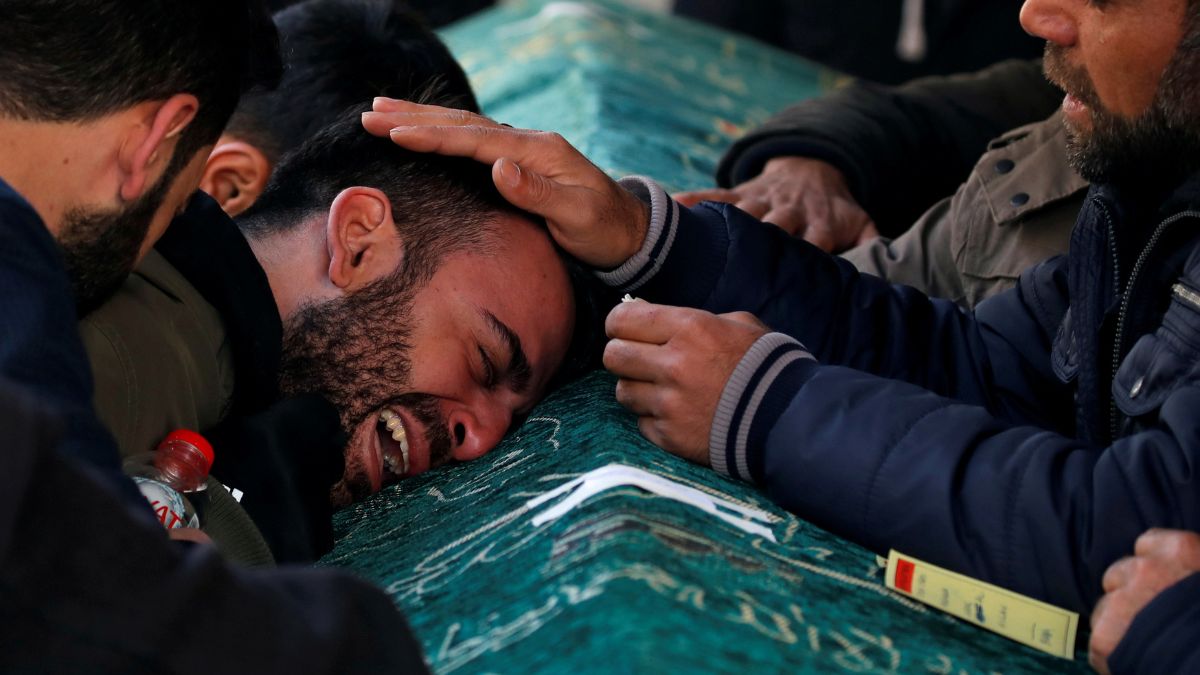- By Nikhil Singh
- Mon, 06 Feb 2023 06:36 PM (IST)
- Source:JND
IT IS not daily that a 7.8 magnitude earthquake shakes up the ground. So when scenes of crumbled buildings, wailing children, and dead bodies trapped in debris meet the eye, most people are left stunned to the core. Unfortunately for Syrians though, such a sight seems painfully familiar. The war-torn country’s citizens have been fighting to live amid an unending conflict between various forces for over a decade now.
Buildings and other infratructure persevering to stand against years of bombardment were in no position to withstand the ground-shaking strength of the earthquake that hit them. Aleppo, which was once the industrial hub of Syria before the Islamic State took over, was witness to huge concrete heaps, splintered rods, and debris replacing tall buildings after the tremors and its aftershocks receded.
Also Watch:
"There were 12 families under there. Not a single one came out. Not one," said a thin young man in the rebel-held town of Jandaris, quoted by news agency Reuters. Bandage was keeping his bruised hand in place and shock kept his eyes wide open.
"We were pulling people out ourselves at three in the morning," he claimed. As he spoke, his breath seemed like steam in the cold winter air, Reuters reported.
Young men hit huge slabs of hammers and removed debris with their hands to look for any sign of life still fighting to hold on. A winter-dampened ground was covered in dented water tanks and solar panels rendered useless.
The earthquake claimed 147 lives in the opposition-held Northwest Syria, informed the “White Helmets”. Neutral unarmed volunteer rescue workers, numbering 3,000, comprise the group that has been named the White Helmets. The group was formed in rebel-held territory to serve people whose lives are upended by bombardment.
More than 300 persons have lost their lives and over 1,000 have been injured due to the earthquake in areas that are still left under the control of government, officials informed. Meanwhile, Turkish President Recep Tayyip Erdogan has informed that more than 900 of his citizens were lost to the calamity and 5,000 have been injured.
"We are in a race against time to save the lives of those under the rubble. Even if our teams are exhausted, we don't have time to rest," White Helmets head Raed Fares was quoted by Reuters as saying over phone.
The buildings “immediately collapsed”, said Fares, due to the years of air strikes that had left them structurally fragile. The collapsed buildings trapped under them unexpecting sleepers who never had the chance to wake up.
FREEZING TEMPERATURES
White Helmets have been tending to the victims of war for years. Following the earthquake, counterintuitively, they got a quaint respite.
"At least now, no one is going to bomb us as we work," said Fares.
However, the woes of him and others like him are not over. The cold winter weather has come as another challenge that they must work their way around. Fares informed that scores of families have been left exposed in near-freezing tempretures and heavy rains. Modest structures erected in the displacement camps in rural regions of the Idlib province were damaged by the earthquake. This camp had been hosting Syrians who had fled the war over several years, Ahmad Al-Sheikh, a resident of a nearby border town, said.
The rebel held town of Afrin, to the West of Idlib, was covered with wounded residents writhing on the ground and women having a hard time connecting with their loved ones over phone, as all lines were down. Wailing toddlers, bloodstained floor, and Medics zipping black body bags formed the background.
Around 2.9 million people have been displaced by the war and 1.8 million are living in camps in Northwest Syria, according to United Nations. Shelling and aerial raids by Syrian government or Russian forces have put the lives of paramedics in risk for years as they worked to rescue ordinary people. Syrians and Russians have often hit the same location multiple times.
"Ambulance sirens are heard everywhere. People are shocked," Ibrahim Obaid, an Afrin resident, said.
"The situation is so tragic. There's so much fear and we still feel the tremors," he added.
(With Reuters inputs)
